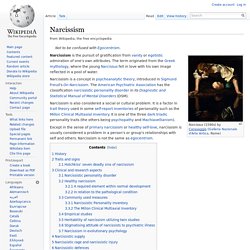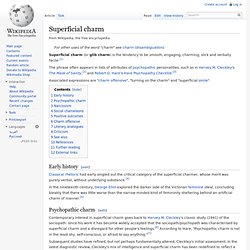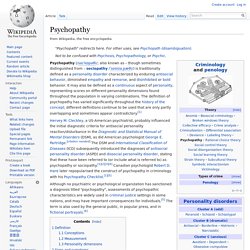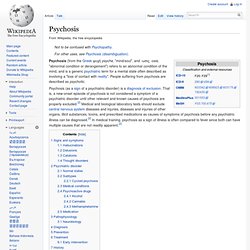

Machiavellianism. Political thought[edit] In the 16th century, immediately following the publication of The Prince, Machiavellianism was seen as a foreign plague infecting northern European politics, originating in Italy, and having first infected France.

It was in this context that the St. The English playwright Christopher Marlowe was an enthusiastic proponent of this view. Machiavellian intelligence. "It ought to be remembered that there is nothing more difficult to take in hand, more perilous to conduct, or more uncertain in its success, than to take the lead in the introduction of a new order of things.

" - Niccolò Machiavelli, The Prince In cognitive science and evolutionary psychology, Machiavellian intelligence (also known as political intelligence or social intelligence) is the capacity of an entity to be in a successful political engagement with social groups. The first introduction of this concept to primatology came from Frans de Waal's book "Chimpanzee Politics" (1982), which described social maneuvering while explicitly quoting Machiavelli. Also known as machiavellianism, it is the art of manipulation in which others are socially manipulated in a way that benefits the user, whether it is to the detriment of the people being used. The user would feel little to no remorse or empathy when their actions harm others. Niccolò Machiavelli. Niccolò di Bernardo dei Machiavelli (Italian: [nikkoˈlɔ makjaˈvɛlli]; 3 May 1469 – 21 June 1527) was an Italian historian, politician, diplomat, philosopher, humanist, and writer based in Florence during the Renaissance.

He was for many years an official in the Florentine Republic, with responsibilities in diplomatic and military affairs. Narcissism. Narcissism is a concept in psychoanalytic theory, introduced in Sigmund Freud's On Narcissism.

The American Psychiatric Association has the classification narcissistic personality disorder in its Diagnostic and Statistical Manual of Mental Disorders (DSM). Narcissism is also considered a social or cultural problem. It is a factor in trait theory used in some self-report inventories of personality such as the Millon Clinical Multiaxial Inventory. It is one of the three dark triadic personality traits (the others being psychopathy and Machiavellianism). Except in the sense of primary narcissism or healthy self-love, narcissism is usually considered a problem in a person's or group's relationships with self and others.
History[edit] The concept of excessive selfishness has been recognized throughout history. Superficial charm. Superficial charm (or glib charm) is the tendency to be smooth, engaging, charming, slick and verbally facile.[1] The phrase often appears in lists of attributes of psychopathic personalities, such as in Hervey M.

Cleckley's The Mask of Sanity,[2] and Robert D. Hare's Hare Psychopathy Checklist.[3] Associated expressions are "charm offensive", "turning on the charm" and "superficial smile". Early history[edit] Classical rhetoric had early singled out the critical category of the superficial charmer, whose merit was purely verbal, without underlying substance.[4] In the nineteenth century, George Eliot explored the darker side of the Victorian feminine ideal, concluding bleakly that there was little worse than the narrow minded kind of femininity sheltering behind an artificial charm of manner.[5] Psychopathic charm[edit] Contemporary interest in superficial charm goes back to Hervey M.
Subsequent studies have refined, but not perhaps fundamentally altered, Cleckley's initial assessment. F. Psychopathy. Hervey M.

Cleckley, a US-American psychiatrist, probably influenced the initial diagnostic criteria for antisocial personality reaction/disturbance in the Diagnostic and Statistical Manual of Mental Disorders (DSM), as did American psychologist George E. Partridge. [citation needed] The DSM and International Classification of Diseases (ICD) subsequently introduced the diagnoses of antisocial personality disorder (ASPD) and dissocial personality disorder, stating that these have been referred to (or include what is referred to) as psychopathy or sociopathy.[1][2][3][4] Canadian psychologist Robert D. Hare later repopularised the construct of psychopathy in criminology with his Psychopathy Checklist.[1][5] Definition[edit] Conceptions[edit] Researchers have noted that there appear to be at least two different conceptions of psychopathy, each with differing policy implications. Psychosis. Psychosis (from the Greek ψυχή psyche, "mind/soul", and -ωσις -osis, "abnormal condition or derangement") refers to an abnormal condition of the mind, and is a generic psychiatric term for a mental state often described as involving a "loss of contact with reality".

People suffering from psychosis are described as psychotic. Dark triad. The dark triad is a group of three personality traits: narcissism, Machiavellianism and psychopathy.[1][2][3] The use of the term "dark" reflects the perception that these traits have interpersonally aversive qualities:[4][5][6][7] Narcissism is characterized by grandiosity, pride, egotism, and a lack of empathy.[8]Machiavellianism is characterized by manipulation and exploitation of others, a cynical disregard for morality, and a focus on self-interest and deception.[9]Psychopathy is characterized by enduring antisocial behavior, impulsivity, selfishness, callousness, and remorselessness.[10] All three traits have been associated with a callous-manipulative interpersonal style.[11] Jakobwitz and Egan carried out a factor analysis and found agreeableness strongly dissociated with these traits, and other factors, such as neuroticism and a lack of conscientiousness, associated with some traits.

History[edit] Subclinical dimensions vs. disorders[edit]